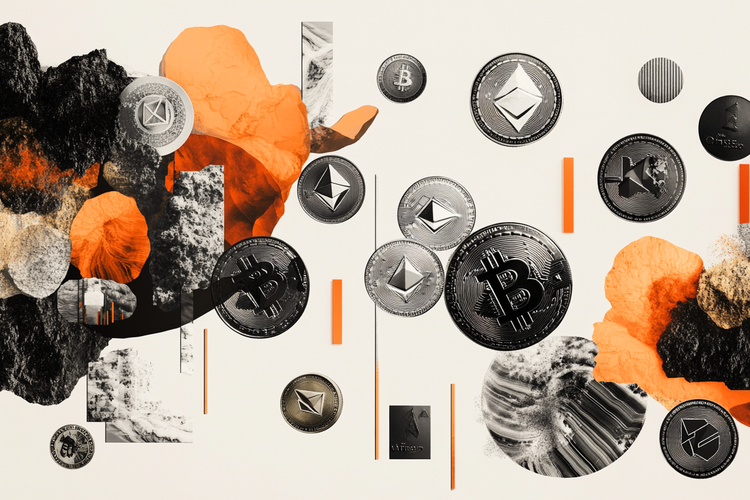Cryptocurrency has transformed the financial world with its decentralization and newfound investment avenues. Yet, this has also lured scammers from all over the world targeting inexperienced crypto lovers as well as established investors. In this guide, we will guide you through popular crypto scam schemes, how to identify them, and how to take practical measures to secure your online assets.
Common crypto scams
Phishing attacks
Phishing attacks, the most common and probably the oldest way of scamming attempts through the age of the internet, seen in multiple forms, which include, comprise fake emails, messages, or websites that impersonate genuine sites to acquire sensitive information such as wallet keys or login credentials. For example, an email with a subject line such as “Verify Your Wallet Details” may cause you to lose your funds.
Phishing attacks are the most common and probably the oldest type of frauds, crypto and non crypto, on the internet. They appear in many forms, including fake emails, messages, or websites that impersonate real ones to steal sensitive information like wallet keys or login credentials. These scams trick users into revealing personal data by pretending to be trusted sources. For example, you might receive an email with a subject like “Verify Your Wallet Details,” which could lead you to a fake site and result in the loss of your funds in just a few clicks.
You can easily avoid such attempts:
-
Verify the sender’s email address and website URL.
-
Never give out your private keys, passwords, bank account numbers etc
-
Utilize official apps or just bookmark verified websites for sites you use regularly.
Ponzi and pyramid schemes
Ponzi as well as pyramid schemes guarantee high profits with little risk, returning early investors with proceeds from newer participants. The schemes unravel when new investment declines, resulting in massive losses.
QUOTE:
“Ponzi schemes are a type of investment fraud in which investors are promised artificially high rates of return with little or no risk”
One of the biggest crypto scams BitConnect, an infamous Ponzi scheme, swindled users with its pledge to provide guaranteed high earnings on its investment platform.
ADD Bitconnect LOGO with SCAM stamp on it
A recent incident of a Ponzi scheme happened just recently and 18 people have been arrested in South Korea. From December 2023 to July 2024, scammers tricked people into investing by promising big and steady profits. They said they were making lots of money by quickly trading two popular cryptocurrencies, Bitcoin (BTC) and Tether (USDT). They told investors they would earn 2% every day, which is a warning sign for anyone with experience in investing.
How to avoid such schemes:
-
Be wary of investments with overly high returns.
-
Conduct research into an investment opportunity’s business model and transparency.
-
Follow known and legitimate media channels for education and alerts.
Fake initial coin offerings (ICOs)
Scammers create sham ICOs, offering promising blockchain projects with a view to raising funds and then vanishing with them.
How to avoid them:
-
Carefully review the company’s whitepaper.
-
Confirm credentials and authenticity of project team members.
-
Seek out endorsements or partnerships with credible organizations.
-
Search online for information about the specific startup
“Romance” and social manipulation scams
Scammers use social media to build trust with people online and then trick them into investing in fake crypto schemes. They target popular platforms like Twitter (X), Discord, Reddit, Telegram, YouTube, TikTok, Facebook and Viber (especially for Europe). These platforms are great for meeting others, sharing info, and building communities, all important for real crypto projects, which is why scammers use them too.
How to avoid social manipulation cryptocurrency scams:
-
Be on your guard when online friendships turn quickly to financial talks.
-
Confirm the individual’s identity by means of video calls or other verification protocols.
-
Don’t engage or even interact with any kind of conversation.
Impersonation schemes
Scammers pose as representatives from authentic crypto brands or exchanges in order to convince users to make payments or provide personal information.
The official Twitter handle of Coins.ph was also hacked, advertising a phony token and misguiding investors.
Who doesn’t remember Elon’s Musk incident in November ‘18 where a fake tweet promised to give away 10,000 Bitcoin, one of the most sensational cases in any bitcoin scammer list.
Screenshot from businessinsider.com
The news media went into a frenzy over the story, as it quickly became one of the most talked-about and sensational cryptocurrency scams in recent memory, fresh, shocking, and impossible to ignore
How to avoid impersonation schemes:
-
Verify communications through official means and triple check every information you see out there.
-
Deal with local crypto KOLs directly (easy approachable) when offered suspicious requests or propositions. They are more knowledgeable and (most of the time) are willing to help having in mind the local community.
Warning signs of a cryptocurrency scam
Warning signs of a crypto scam include promises of high returns with little risk, a sense of urgency or pressure to “act quickly,” and a lack of clear information about the business model, team, or project. Be especially cautious if you’re asked for private keys, passwords, or payments in exchange for rewards.
How to secure your cryptocurrency
Utilize secure wallets
If you want to keep your crypto safe, you need to use secure wallets.
Hardware wallets (aka cold wallets) keep your private keys offline, so they’re harder for hackers to get into. Just make sure to buy one from a trusted seller, and store your recovery phrase somewhere safe and offline.
For digital wallets, turn on two-factor authentication (2FA). It adds an extra security step beyond just a password. Avoid using common passwords like 1234… or names, etc
If you want even more security, look into multi-signature wallets. These need approval from more than one person (or device) before sending any crypto, which makes it way harder for anyone to steal your funds.
In short, use a hardware wallet, turn on 2FA, use strong passwords, and think about multi-signature wallets. Doing all this gives your crypto way better protection.
Don’t use public Wi-Fi for transactions
Isn’t very common but better be safe than sorry. Public connections are susceptible to hacker attack. Use a secure VPN when connecting to wallets or exchanges.
Check links and apps
Download apps for wallets and exchanges from official stores such as Google Play or the Apple App Store only. Don’t click on strange links or attachments you found on a telegram channel.
Perform due diligence
Investigate the project beforehand. Check for its reviews, regulatory clearance, and credibility of the team.
Remain current
Scammers always keep improving. Join relevant online forums, keep an eye on crypto security news, and talk with trusted online groups.
What to do if you’ve been scammed
1. Document everything
Maintain email records, transaction numbers, and communications with fraudsters. These are critical when reporting the fraud.
2. Report the scam
Report to local authorities, finance regulators, or consumer protection departments. Victims in the Philippines may, for instance, file cases with the Cybercrime Investigation and Coordinating Center or with the Securities and Exchange Commission (SEC).
3. Consult a lawyer
In all honesty this is quite difficult because of the nature of the crypto sphere but seeking an attorney with expertise in financial fraud to investigate legal recourse for recovering misplaced funds, may be useful.
4. Inform relevant platforms
If a scam is on a specific platform or exchange, immediately notify its support team.
Creating a safer future for crypto lovers and investors
From my experience in crypto since 2017, I believe scams and fraud are always lurking, and the only way to stay safe is by constantly learning and staying informed. The rise in scams shows the need for better security measures and more education in the crypto world. New technologies like AI-based fraud prevention are being developed to help protect us. Collaboration between crypto players, regulators, and the community is essential to make digital markets safer.
Stay alert, do your research, and use strong security practices. The smarter and more careful you are, the less likely you are to fall victim to scams.


